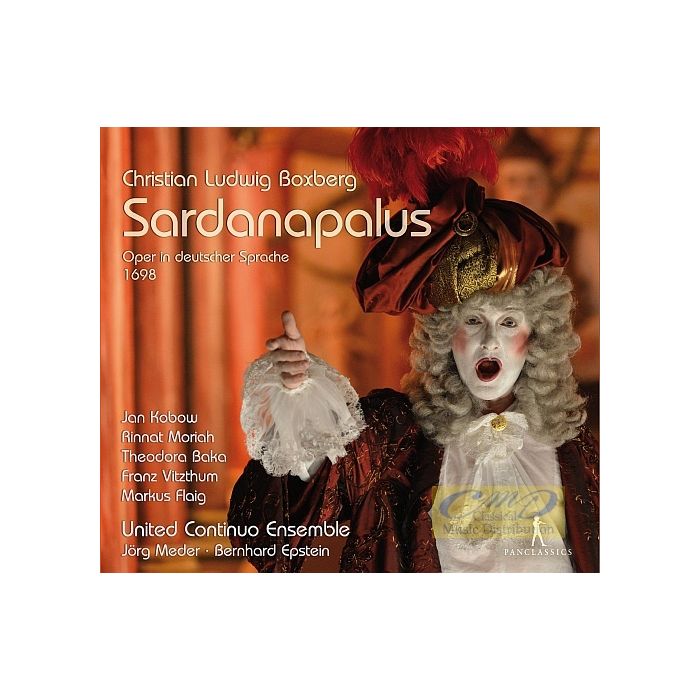
(Produkt nie został jeszcze oceniony)
kompozytor
Boxberg, Christian Ludwig
tytuł
Boxberg: Sardanapalus
wykonawcy
Epstein, Bernhard, Meder, Jörg, soliści
nr katalogowy
PC 10315
opis
Christian Ludwig Boxberg (1670-1729) belongs to the 'lost' generation of composers between Schütz and Bach. For decades, the revival of baroque music has concentrated on these two poles of German Baroque music to such an extent that everything between them can appear imperfect by comparison. Boxberg's 'Sardanapalus', however, is by no means imperfect. On the contrary, we experience here a remarkable synthesis of the various European national styles. Alongside German influences, those of both French and Italian opera are unmistakeable. The very witty libretto was written by Boxberg himself, and retells Diodorus's history of the profligate Assyrian King Sardanapalus who, far from being interested in ruling the land, liked to put on makeup, parade about in women's clothing and give in to acts of salaciousness with both women and men. Christian Boxberg was himself a pupil at St. Thomas's School in Leipzig, later becoming a singer at the first civic opera house in Leipzig under Nikolaus Adam Strunck, for whom he also wrote several libretti. When the latter, fearing his creditors, no longer dared appear in the city, Boxberg filled the breach, writing several operas for the Leipzig Opera House - none of which has survived to the present day. As luck would have it, the members of the Leipzig Opera undertook a journey in 1698 to Ansbach, where a copy of the score of Sardanapalus was preserved; it is thus one of the earliest surviving operas in the German language. Thanks to the indefatigable commitment of Jörg Meder and his United Continuo Ensemble, this special work has been performed again and is now also available on CD as a live recording.
nośnik
CD x 3
wydawca
Pan Classics
data wydania
18.08.2014
EAN / kod kreskowy
7619990103153
139,00 zł
Produkt na zamówienie
Wysyłka ustalana indywidualnie.
Darmowa wysyłka dla zamówień powyżej 300 zł!
Darmowy kurier dla zamówień powyżej 500 zł!
sprawdź koszty wysyłki
